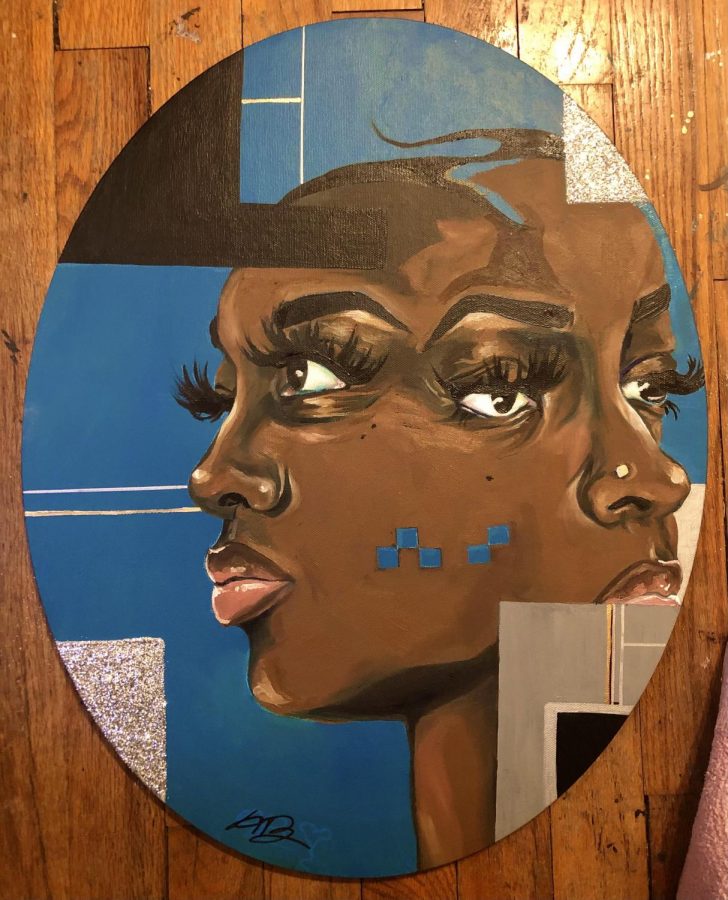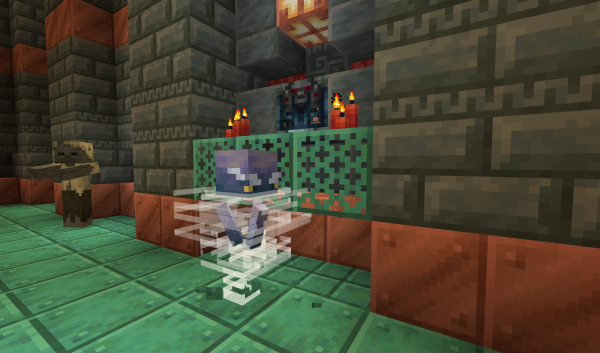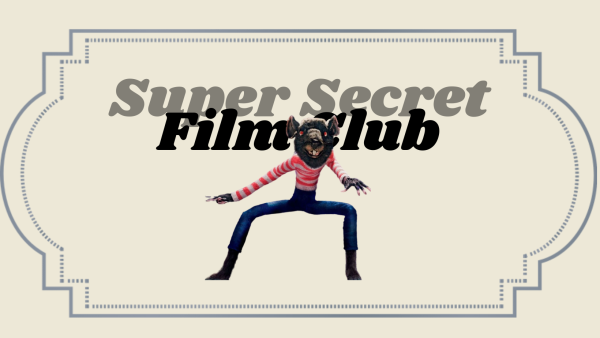Catalyst Celebrates Black History Month
Carter G. Woodson, writer and the founder of the Association for the Study of African American Life and History (ASALH) created Negro History Week in 1926 to commemorate the Black past and to coincide with traditional celebrations of both Frederick Douglass and Abraham Lincoln’s birthdays which are both in the second week of February. Carter began to feel overwhelmed as the week was celebrated in school systems before it received wider, public recognition, and teachers needed materials for the classroom. He then teamed up ASALH to meet the demand and create annual themes for celebration. Together they provided study materials such as lesson plans, literature, pictures, and scripts for historical plays. This helped high schools form Negro History Clubs, a way to re-educate members of the Black community from coast to coast.
In 1937, after being urged by Mary McLeod Bethune (founder of Bethune–Cookman University) to create a publication for educators and general readers Woodson established the Negro History Bulletin, a literary journal that focused on the annual theme of Negro History Week. Woodson worried that the weekly celebrations would come to an end and he did not view Black history as a one-week thing, he intended for the week to demonstrate what students learned in an entire school year. Woodson believed that Black history was too important for the world to be squeeze in such a small time frame. He spoke of having a shift from Negro History Week to Negro History Year. Woodson died in 1950 before he could see his dream of having more than Negro History Week come to life. In 1970 the first Black History Month celebration was held at Kent State from January 2nd to February 28th. Since then Black History Month has evolved and been celebrated all over the country.
As this year’s Black History Month comes to an end we would like to showcase poetry by Anaiyah Conley, Kiana Cox, Sam Kayode, Chichi Onyekwere, an essay by Akili Williams, and links to articles by Khadijah Olufayo and Anaiyah Conley. Thanks to Atiya Brockington for the beautiful image accompanying this article.
We also would like to remind everyone it’s not just Black History Month, it’s Black History 24/7 365.
*
Staying Afloat By Kiana Cox
Being different isn’t a negative figure of speech.
It’s no longer way to mock someone whose skin
is darker, or who’s hairstyle is culturally significant,
or whose food doesn’t smell like everyone else’s.
In my case, and for many other black people
living in America, we’ve experienced all of the above.
Something I learned throughout 2020 is:
Not everyone likes the fact that black people can
stay afloat. Some people would rather have us
drown in our issues then find our way out.
They don’t want to see us thrive.
There will be people who say that our life doesn’t
matter, and people who say that our kind doesn’t
deserve justice- even when it’s evident that
the victims were just a sheep in wolves clothing.
We are human underneath the criminal that
they see. The way they expect us to dress, speak,
and act shouldn’t define us- and yet it does. Their
perception of a typical black person hurts everyone,
especially those who don’t fit the stereotype.
Because in incidents such as police brutality,
They always say it’s the victim who was in the
wrong. That it’s the hoodie we might wear
our head, or the AAVE dialect we might use
to communicate, or the braids that might
design our hair that makes a black person
look like a criminal, and yet it’s trendy
and cool when seen on others.
No matter how hard we might try to speak out
about how the victim’s life was taken unlawfully,
some people will always resort to bringing up
their past to justify their tragedy- as if death
from $20 can truly be justified.
We are different, and that doesn’t have to be a
bad thing. Because no matter how many times
someone tried to bring us down for who we are
we will still forever be proud of our heritage,
the progress we made, and continue to fight for
justice and equality. Here we remain afloat.
*
“aaliyah’s interlude (an ode to maya angelou)” by Anaiyah Conley
pretty women wonder where my confidence lies.
i’m not pale or born with pretty green eyes
but when i start to embrace them,
they think it’s a disguise.
i say,
it’s in the no limits of my mind,
the curve of my hips,
the grain of my hair,
the plumpness of my lips.
i’m a woman
beautifully.
beautiful woman,
that’s me.
i walk into a room
just as pretty as can be,
and to a man,
my pigment is all he sees
but i don’t let it bother me.
a group that acts sheepishly
flock around secretly,
i say
it’s the strength of my ego,
and the kindness of my heart of my that is sweet,
the shine in my smile,
and the rhythm of my own beat.
i’m a woman
beautifully.
beautiful woman,
that’s me.
men themselves have wondered
what they see in me.
they try too much
but they can’t touch
my inner feminine energy.
then when I try to show them,
they say they still can’t see.
i say,
it’s in the expression of my face,
the gentleness of my soul,
the radiance of my aura,
the things i don’t try to control.
i’m a woman
beautifully.
beautiful woman,
that’s me.
now you understand
just why my head’s not bowed.
i don’t get offended or enraged about
the hate that would bring me down.
when you see me passing,
it ought to make you proud.
i say,
it’s in the strength of my shoulders
the slickness of my tongue,
the flow of my fingers,
the melanin of my skin that makes me look young.
i’m a woman
beautifully.
beautiful woman,
that’s me.
*
“ptsd” by Anaiyah Conley
life’s nauseating
the struggle been
weighing
down on me
i’ve been calculating
and equating
what can be done
i’ve been isolating
and operating as if
everything around me
is okay
but it’s not
i’ve been overthinking
about the past, thoughts
skating and racing i
can’t let them go
voices in my head
are loud and clear
they want me dead
they won’t stop
communicating
they won’t start
annihilating
they make things more
complicated
i’m not
dominating
my conscious
is fading
i’ve been speculating
something’s not right
but they told me
i’m too young
and overdramatic,
i’m too young to
go through something
tragic
but my life is a tragedy
when i turn on the
tv i see
people like me
crying, dying, and screaming
for justice and peace
it’s quite damaging
to think if i walk
outside right now
i might get killed
streets would be
filled with more
violence and riots
i’m not safe here
or anywhere
i can die in bed
or in another
country
it’s been 400
years and
we still aren’t
free
then they wonder
why we cause a frenzy
this can cause
ptsd
*
“Black and Gold” by Chichi Onyekwere
“Black gold” she would say, is what
lives in the heart and soul, and that confidence
to be who you are shows in your skin and hair.
*
“Checkmate” by Sam Kayode
At times I grasp at my identity
Am I black or Nigerian?
I truly don’t know
It doesn’t matter
Society groups as the same
Society gets a scolding eye
It views us as the same
Are we plain?
I smack myself for asking such a stupid question
We have culture
Can you say the same?
Joy is in our names
But my happiness stops abruptly
I realize I will be eighteen soon
I try telling myself I’m just a Boy
The burdens of becoming a black man leave me scared and annoyed
I’m sixteen now
Sixteen
In two years, I will be a legal adult
The police can stop me when I am in no way at fault
When the Five-O turns the corner
Fear will race down my spine
I must be prepared to die
I’ll think about how these men misuse their guns and their badges in the back of my mind
Its much like a chess game
White has come to my side of the board
I’m running out of time
I tell white
I struggle to know the truth about myself
That is true
But I am stronger than you
I fear for my life
But my wit is as sharp a knife
I take whites pawn
I advance to the queen
Check mate white
Check mate society
*
“Black Barbie” by Akili Williams
It’s 2010. You’re five years old, sitting on the carpet in your mother’s room. You can hear your grandmother in the kitchen, the clink clink clink of pots and pans in the background. You shift excitedly on the floor, your legs crossed and your hands fisted in your lap. In your right hand, you hold a Barbie doll, your fingers wrapped tightly around her waist, her wide grin and bright blue eyes tilted up to face you. She’s gorgeous. She’s perfect. She’s fake. She’s everything you’re not. The TV in front of you is thick and small, mounted on a deep blue storage bin. The screen isn’t the best quality, but you don’t care. Your eyes are wide in rapt attention, and your mouth is frozen open in awe. Your face is a picture of utter reverence as you watch her dance across the screen. It’s Barbie, with her long blonde locks and her thin waist. She’s gorgeous. She’s flawless. She’s fake. You bite your lips, your teeth harsh and unforgiving. You’d give anything to be just like her. You’d give anything to look just like her.
It’s 2011. You’re kneeling on a chair, fiddling with the computer, your brows furrowed in determination. You painstakingly go through every option, every hair color, every face shape, every outfit. You do not go through every skin option. You’re sensible; you choose the palest one. You lean closer to the screen, your lips pursed, you want this to be perfect. This is you, you suppose. You think that you were supposed to create you. To immerse yourself in this world. And this character is everything you want to be. You click through all the noses once more. You pick the smallest one.
It’s 2012. None of the other girls have hair like you. Even the ones darker than you. Instead, their hair is pressed completely straight, shiny from coco oil, and laying flat down their backs. You try not to think about your dreads, try not to flinch as they smack you in the face. Instead, you stare longingly from across the cafeteria. Even as your friends laugh with you, grin at you, you cannot help but notice how their hair is straight but yours is not. You want a perm more than anything. You dig your hand into your (fat.) thigh and pull on one of your locks with the other.
It’s 2013. You love telling stories so much. Ever since you first took your pencil to paper, you’ve been enraptured. You can’t imagine doing anything else in your life. This is who you are. This is what you need. You draw the covers yourself, ensnaring your colored pencils in a vice grip, your tongue peeking out of your lips. Blond hair, bright blue eyes, pink lips, white grin. She’s gorgeous. She’s flawless. She’s fake, but she’s normal. The average teen. The perfect protagonist, just like all the stories that came before you. Her name is Amarissa, your middle name. It means beautiful. She’s gorgeous. She’s beautiful and she deserves it more than you.
It’s 2014. 2015. 2016. You stand in single file lines, a grin on your face as you and your classmates waddle behind the teacher. You run across the blacktop during recess, the wind blowing through your hair as you laugh with your friends. You sing songs in music, you draw pictures in art, you sit on the rainbow-colored carpet as you scribble in your notebook. You grin as you finally begin to understand basic division. You’re nine, you’re ten, you’re eleven, and you loath yourself more than anything.
It’s 2017, and you’re furious. You’re angry and you cannot tell why. Looking in the mirror makes you feel sick to your stomach. You can hear the things they say about you, about how you look like a boy. It’s the dreads. It has to be. You don’t have a perm like any of them. You don’t keep your hair clipped back with ribbons and bows. You don’t have silky hair that lays down your back. You’re fat and disgusting and it hides any trace of puberty from your body, and the dreads only serve to blur the lines more. You think of your old Barbie dolls and you wonder where they’ve gone. You got rid of them when you moved into your house. You wish you were like them. You wish you had straight hair and blue eyes and a thin nose and small lips and and and. You sit alone at the lunch table and you look across the room at the girls you’ve known since elementary school. You look at their straightened hair and brighter smiles and prettier voices and lighter skin. You haven’t talked much lately, you don’t know what you’d say if you did. You’ve sat with them once and you knew immediately that you didn’t belong. You don’t wonder if they hate you as much as you hate yourself. You already know.
It’s 2018, and you’re…hopeful. You’re getting your dreads taken out and you’re sure that that will make you happy. You’re sure. Pretty soon you’ll be able to straighten your hair like all the other girls. Maybe you’ll be beautiful. You’ll never be blond or tall or thin or blue-eyed or pretty or perfect or unreal. But you can be close enough. You can be better. You can be happier. You need to be happier. You sit at the end of the table with the girls you’ve known since elementary school and you listen to their conversations as they happen around you. You watch their smiles, desperately attempting to come up with the right thing to say, and you wonder what it’s like to be them. You wonder if they hate you as much as you hate yourself.
You’re hopeful. You’ve been trying to learn how to take care of your hair. You’ve never done much more than washing, you’ve never needed to. You had dreads, after all. There’s more information on black hair than you ever knew existed. You didn’t realize how many options you had. For you, there was only one: straightened. There wasn’t much on that. Instead, there were pages and pages of love. Pure love. True love. Pages upon pages of black women loving and supporting one another. No idols, no Barbies, only people. And they loved themselves more than you thought one could ever love themself. They had wide noses and dark skin and any kind of body and thick, dark hair that curled into itself in a wide explosion of kinks and curls. They’re gorgeous. They’re flawless. They’re real. They’re you. You never thought that being black was something to be proud of. At first, you had no concept of it. And then, as soon as you became aware of it, it was a prison. It was a pillory, leaving you trapped and helpless as others pointed and stared. You spent so long wanting to be free, but it was never the prison, never the chains holding you back. It never occurred to you to be proud of being black. It never occurred to you. You just want to be happy, and it seems as though there is more than one way.
It’s 2021. You stay up all night talking to the girls who went to your elementary school. Your cheeks hurt from smiling. You wonder if they know you love them. Your hair flows down your back, not silky or smooth, but thick and tied into intricate braids. And you love them, most of the time. You love your kinks and your coils and your skin and your roots. You love the reality and not the fantasy of you. There is no ideal because you are the ideal. Well, most of the time. Most of the time you know that you are loved and you are happy and this is what you’ve been wanting and and and. And sometimes you close your eyes and all you can see are blue eyes and blonde hair and a thin nose and…that’s okay. You think. You’re doing better. You haven’t reached the happiness you dreamed of but that’s okay. That’s okay. You’re okay. You’re gorgeous. You’re unique. You’re black. You’re okay.
“A Feminism for Black Women” by Khadijah Olufayo
*
“Why It’s Not Just a Hairstyle” by Anaiyah Conley



